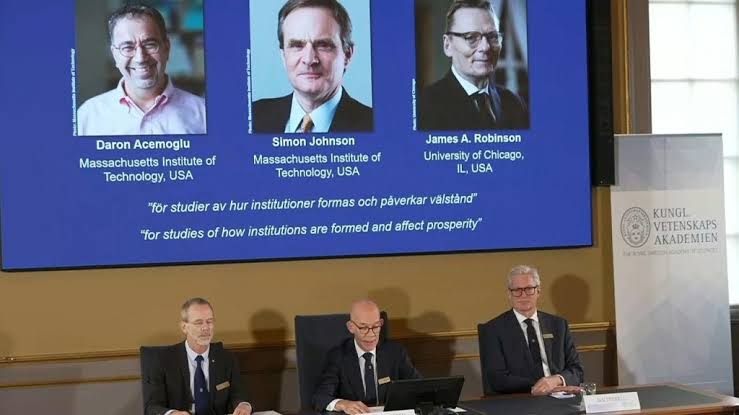The Nobel Prize in Economics has been awarded Monday to Daron Acemoglu, Simon Johnson, and James Robinson for their exploration of how institutional frameworks influence global prosperity and inequality. The trio will share the prestigious accolade, which comes with a cash prize of 11 million Swedish kronor (approximately $1 million).
The Nobel Committee commended the economists for illuminating why “societies with a poor rule of law and institutions that exploit the population do not generate growth or change for the better.” Their research reveals the lasting impacts of colonization, explaining that while many colonial powers aimed to exploit indigenous populations, in some regions, they inadvertently established foundations for inclusive political and economic systems.
The committee noted, “The laureates have shown that one explanation for differences in countries’ prosperity is the societal institutions that were introduced during colonization.” Countries that fostered “inclusive institutions”—which support the rule of law and property rights—have seen significant economic growth, while those with “extractive institutions” have continued to struggle.
In their influential 2012 book, *Why Nations Fail*, Acemoglu and Robinson argue that political and economic institutions largely dictate a nation’s wealth. They illustrate their thesis with a striking comparison of two towns named Nogales: one in Arizona and the other in Mexico’s Sonora region. While traditional economists often cite factors like climate and culture as determinants of prosperity, Acemoglu and Robinson attribute the disparities to the strength of local institutions, leading to improved health and wealth in Nogales, Arizona.
Last year, Acemoglu and Johnson furthered this discourse with *Power and Progress*, a study examining how technological advancements have historically favored elites over the general populace. They caution that the trajectory of artificial intelligence, if unchecked, poses risks to both economic equity and democratic integrity.
Responding to whether their findings suggest that “democracy means economic growth,” Acemoglu acknowledged the link but stressed that “democracy is not a panacea.” He added, “Our argument has been that this sort of authoritarian growth is more unstable and does not generally lead to very rapid and original innovation.”
In the context of China, Acemoglu reflected on the challenges to their theory presented by the nation’s substantial investments in technology, saying, “But my perspective is generally that these authoritarian regimes, for a variety of reasons, are going to have a harder time in achieving long-term, sustainable innovation outcomes.”
The Nobel Prize in Economics, officially known as the Bank of Sweden Prize in Economic Sciences in Memory of Alfred Nobel, was established by Sweden’s central bank in 1968 and differs from the other Nobel awards instituted by Alfred Nobel himself. Last year’s prize was awarded to Claudia Goldin for her pioneering research on women in the labor market, revealing the evolving nature of the gender pay gap over more than two centuries.











